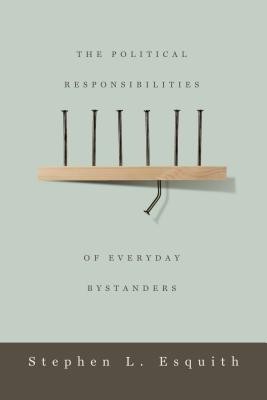
- We will send in 10–14 business days.
- Author: Stephen L Esquith
- Publisher: Penn State University Press
- ISBN-10: 0271036680
- ISBN-13: 9780271036687
- Format: 15.2 x 22.9 x 1.5 cm, softcover
- Language: English
- SAVE -10% with code: EXTRA
The Political Responsibilities of Everyday Bystanders (e-book) (used book) | bookbook.eu
Reviews
Description
In a world where every person is exposed daily through the mass media to images of violence and suffering, as most dramatically exemplified in recent years by the ongoing tragedy in Darfur, the question naturally arises: What responsibilities do we, as bystanders to such social injustice, bear in holding accountable those who have created the conditions for this suffering? And what is our own complicity in the continuance of such violence--indeed, how do we contribute to and benefit from it? How is our responsibility as individuals connected to our collective responsibility as members of a society? Such questions underlie Stephen Esquith's investigation in this book. For Esquith, being responsible means holding ourselves accountable as a people for the institutions we have built or tolerated and the choices we have made individually and collectively within these institutional constraints. It is thus more than just acknowledgment; it involves settling accounts as well as recognizing our own complicity even as bystanders.
EXTRA 10 % discount with code: EXTRA
The promotion ends in 18d.07:14:18
The discount code is valid when purchasing from 10 €. Discounts do not stack.
- Author: Stephen L Esquith
- Publisher: Penn State University Press
- ISBN-10: 0271036680
- ISBN-13: 9780271036687
- Format: 15.2 x 22.9 x 1.5 cm, softcover
- Language: English English
In a world where every person is exposed daily through the mass media to images of violence and suffering, as most dramatically exemplified in recent years by the ongoing tragedy in Darfur, the question naturally arises: What responsibilities do we, as bystanders to such social injustice, bear in holding accountable those who have created the conditions for this suffering? And what is our own complicity in the continuance of such violence--indeed, how do we contribute to and benefit from it? How is our responsibility as individuals connected to our collective responsibility as members of a society? Such questions underlie Stephen Esquith's investigation in this book. For Esquith, being responsible means holding ourselves accountable as a people for the institutions we have built or tolerated and the choices we have made individually and collectively within these institutional constraints. It is thus more than just acknowledgment; it involves settling accounts as well as recognizing our own complicity even as bystanders.


Reviews